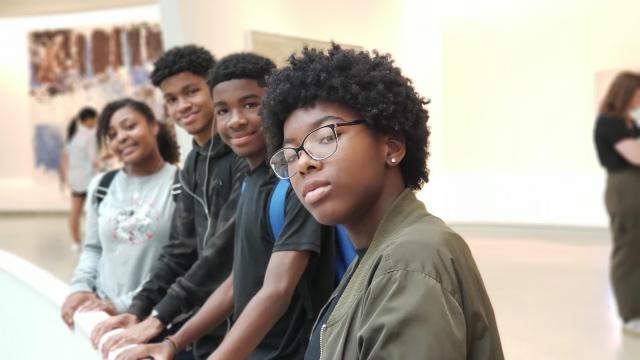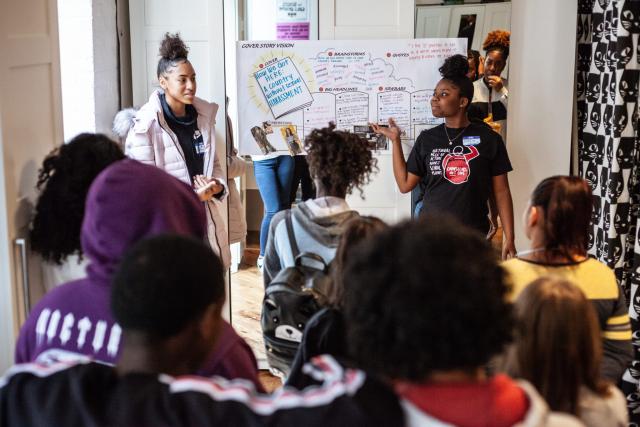Racial Justice

Cultivating Connection and Community
New York City has always faced racial and economic inequality, but the COVID-19 pandemic worsened those divides in new and challenging ways. That is especially true for young people affected by school closures and sharp reductions in after-school enrichment activities. Studies show that after experiencing overwhelming social isolation and disconnection from academic study, Black and brown youth require increased support for deeper connection.
Trinity’s Racial Justice initiative mobilizes a holistic commitment to Black and brown youth by empowering programs that center academic achievement, movement leadership, and post-secondary success while building a strong sense of belonging and community among participants. This work has its roots in criminal justice reform, which remains a part of our ongoing commitment to realizing the promise and potential of all Black and brown communities in New York City.
Where We Work
We work with nonprofit organizations who support communities throughout all five boroughs of New York City.
2024 Impact
restorative practices
and mental health
restorative practices
Our Strategies
Foster Academic Success: We center and scale innovative approaches to increase literacy and improve academic outcomes for students of color. Specifically, we fund organizations that aim to increase graduation rates and narrow the college achievement gap through access to high-quality tutoring, mentoring, and targeted interventions.
Promote Student Well-Being: We support restorative practices that create welcoming and supportive school environments. Our grantmaking seeks to reduce the reliance on law enforcement and punitive discipline, while expanding mental health access through school-based social workers and other supports.
Nurture Safe Communities: Our work builds positive school climates, protects immigrants from criminalization, and aims to scale alternatives to detention and end unjust punishment. In these areas, we support organizations that bolster advocacy efforts, build the capacity of directly impacted advocates, and champion youth-led leadership campaigns.
Impact Stories
Challenging Inequity By Supporting Young People: The Brotherhood Sister Sol
For more than 25 years, The Brotherhood Sister Sol (BroSis) has been a champion of opportunity for all, utilizing education, organizing, and training as pathways to challenge inequity. With a focus on Black and Latinx youth, BroSis provides room for young people to claim the power of their history, identity, and community. Since 2021, Trinity’s investment of $850,000 has supported the organization to provide holistic support services including daily afterschool care, counseling, community organizing, mentorship, job training, college prep, and more.
Learn more about the creation of the organization’s new space and Trinity collaboration with BroSis.
Supporting Youth-Led Advocacy: Girls for Gender Equity
Girls for Gender Equity (GGE) centers the leadership of Black girls and gender-expansive young people of color, combining direct service programs, policy change, and culture change work to strengthen youth movements in New York City. Because youth-led organizing and advocacy are critical tools for driving systemic change in educational environments and the broader social landscape, Trinity maintains a long-term investment in the organization’s mission.
Learn more about GGE and Trinity’s collaboration around the JustUs program.
Empowering Students: Borough of Manhattan Community College
At the Borough of Manhattan Community College (BMCC), Project Impact empowers current and prospective BMCC students impacted by the criminal legal system to achieve academic and personal success through higher education. Since 2021, Trinity has supported Project Impact with $725,000 to provide justice-impacted students with peer mentorship, comprehensive academic support, community-building activities, and wrap-around services for basic needs. Most recently, Trinity’s grant funds expanded the program to help incarcerated high school students at East River Academy on Rikers Island transition to BMCC upon release.








